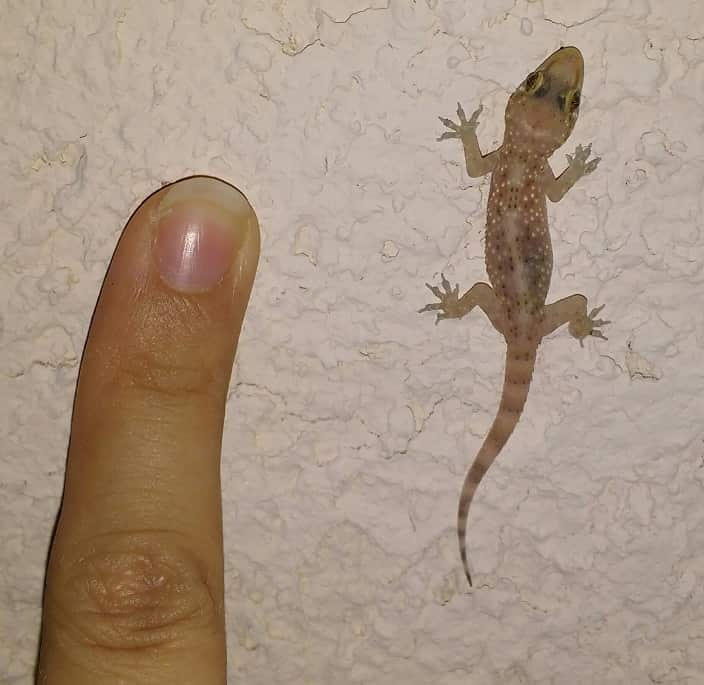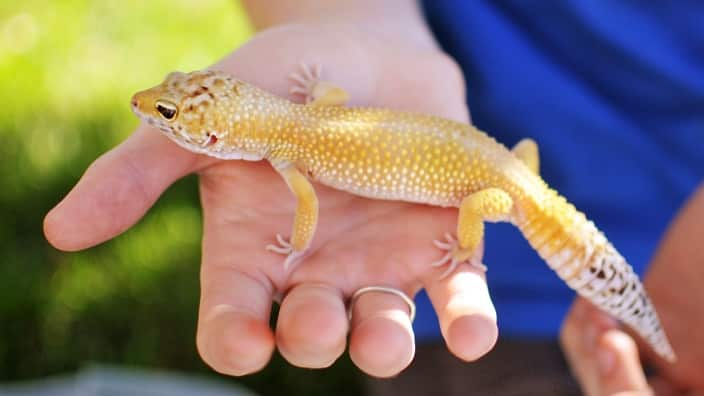The Australian wife of legendary Pakistani cricketer Wasim Akram recently caused a stir on social media with a post on the humble gecko. Shaniera Akram said she couldn’t understand why Pakistanis react so much when they see one.
“I don’t get it, Pakistanis have lived through terrorism, widespread disease, horrific natural disasters, political unrest, famine and poverty. Yet you see one little Gecko and completely lose your sh**!”
"Guys, Geckos 🦎 are innocent lizards. They watch over us, eat our dengue mosquitoes and make malaria their dinner. Don’t hate them, they are our friends."
'Evil', 'creepy as hell', ‘Pakistan’s kryptonite’, and ‘we can face a lion but not chipkali (gecko)’ were some of the responses while others claimed that the geckos found in Pakistan are ‘poisonous’.
The name 'Chipkali' is derived from the word, 'chipakna' in Urdu which means stickiness and refers to the gecko usually found sticking on the wall.

To learn more about the myths associated with chipkali (common house gecko), SBS Urdu spoke to an Australian reptile expert Dr Damien Esquerré, who is a researcher at the Australian National University and specialises in reptile evolutionary biology, with major research on the evolution of the world's pythons and South American lizards.

Q&A with Dr Damien Esquerré
What are geckos?
“Geckos are a group of lizards, very diverse around the world but especially in Australia, where more than 200 species exist, including the legless lizards of the family Pygopodidae, which might look more like snakes but are actually a type of gecko.
“They are an iconic part of the Australian fauna, with fantastic species such as the piny-tailed geckos, the known-tailed geckos and the leaf-tailed geckos.”
Are geckos dangerous to humans?
“To humans, geckos are completely harmless.
“They are very shy and will only come in contact with a human if caught by them, in which case they will bite and lose their tails in an attempt to distract predators.
“Their bites are harmless to humans.”
There are myths particularly in South Asia that geckos can cause illness to humans but this has never been proven by science and is most likely just a myth.
READ MORE
Can we say they are as ‘safe’ as cats and dogs?
“I would say they are much safer than cats and dogs.
“They are as dangerous as your common garden skink.”
Do geckos spread disease and illnesses?
“There are myths particularly in South Asia that geckos can cause illness to humans but this has never been proven by science and is most likely just a myth.”
Image
If geckos go in a pot or kettle / their droppings can 'poison' or leave ' bacteria in food?
“I mean, sure gecko droppings might have pathogenic bacteria like Salmonella and E. coli, but I would say most animal droppings would.
I strongly disagree with the notion that geckos prove a health risk to the human population.
Australia is home to many reptiles; is that the reason for an increased comfort level with geckos compared to other countries such as Pakistan?
“The negative attitude to geckos in other parts is related to superstition, and that is common across the world with reptiles in general.
“Even in Australia myths about snakes are abundant.
“But yes I would say in Australia I have never seen a negative attitude towards geckos or other lizards.”
